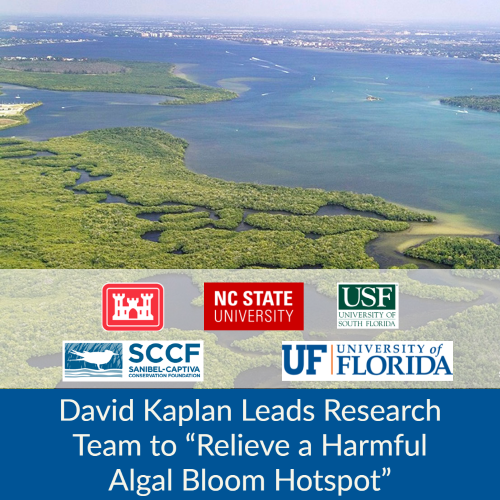David Kaplan Leads Research Team to “Relieve a Harmful Algal Bloom Hotspot”
UF Water Institute Faculty Fellow David Kaplan (UF Environmental Engineering Sciences Department) is the PI of a research project recently featured in a Planet Forward news article, “Can Science Relieve a Harmful Algal Bloom Hotspot?” The project, titled Coupling Lake, Estuarine, and Watershed Models for the Caloosahatchee River and Estuary (known as CLEW), is funded by the US Army Corps of Engineers.
Kaplan leads the CLEW team of researchers from the University of Florida (Elise Morrison, Environmental Engineering Sciences Department; Maitane Olabarrieta, Department of Civil & Coastal Engineering; and Ed Phlips, School of Forest, Fisheries and Geomatics Sciences), along with researchers from the University of South Florida, North Carolina State University, and the Sanibel-Captiva Conservation Foundation. Karen Schlatter, a Research Coordinator of the UF Water Institute, is responsible for facilitating the project’s scientist-stakeholder workshops with the aim of generating actionable science.
The goal of CLEW is to develop data- and model-driven guidance for Lake Okeechobee releases and Caloosahatchee River watershed management based on an improved understanding of the interactive effects of engineered discharges, watershed flow and nutrient deliveries, phytoplankton community dynamics, and river/near-shore hydrodynamics. The research can be used to inform water management policies and other solutions that will help control the algal blooms severely impacting Southwest Florida.
Read the article: https://www.planetforward.org/algal-blooms-hotspot
June 13, 2022


